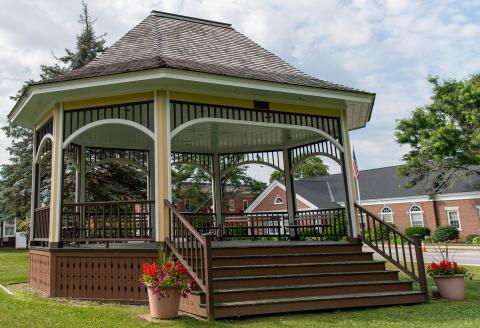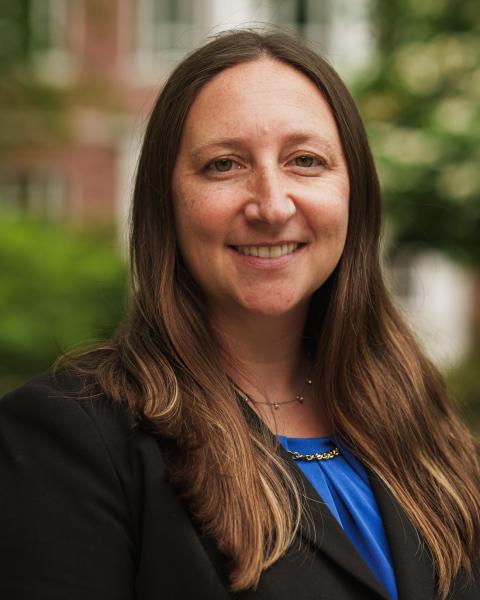
Car parades to celebrate birthdays and graduations. Drive-in movies. Curbside pick-ups for food and retail purchases.
These are just a few of the creative solutions that residents and business owners in New Hampshire are developing to support local communities during challenging times.
Molly Donovan, community and economic development specialist for Extension, explains that creating vibrant downtowns requires investment that includes but also goes beyond buying local.
“The economy is part of a Main Street, but developing vibrant downtowns means creating positive community spirit and new ways to connect,” she says.
Some examples include community art, displays, signage, downtown entrances, landscaping, lighting, parks, natural features, crosswalks, sidewalks, public facilities, waste management and recycling options.
“We have to ask: How do we bring people downtown even if there aren’t a lot of places to spend money? It’s about civic pride. It’s ‘I want this place to look good; I want to bring my friends here.’”
A Place to Gather
Even during times of social distancing, Donovan emphasizes the importance of keeping public spaces open for gatherings like protests. The national discourse about equity is very much a part of this work. “We have to look at downtowns with an eye toward racial justice, because these spaces might not be welcoming to everyone,” she says.
Municipalities are showing flexibility with reimagining spaces like allowing more outdoor dining and encouraging activities that are usually held indoors to move outside, such as town meetings, training sessions or yoga classes.
Donovan says it will be important to maintain an entrepreneurial vision when thinking about how communities recover from the setbacks of the pandemic. This is where Extension can offer guidance with downtown assessments, which provide a way for stakeholders to collect data and information that then helps determine where to focus efforts.

Building Resilience
To help businesses and the communities they serve, Extension has teamed up with UNH’s Peter T. Paul College of Business and Economics to implement a two-year grant from the NH Small Business Development Center (SBDC).
NH SBDC is using $1.28 million in CARES Act funding to support the state’s small businesses. One component of this included a Business Resiliency Survey, sent out in June, which garnered responses from 1,549 small businesses in 172 cities and towns across the state. Results indicated that 19% of these businesses had a resiliency plan in place prior to the pandemic, but nearly 75% think creating a resiliency plan will be important to their business in the future.
To address this, Extension and Paul College will host several regional Small Business Resiliency Academies across the state with tracks for both community economic development practitioners and small businesses. The academies will provide participants with a better understanding of resiliency and help them develop disaster and continuity-of-operations plans.
Liz Gray, state director of the NH SBDC, says, “We knew businesses were struggling, but the survey data quantified the problems and gave us ideas on how we can best support companies going forward.”
National Network
Beyond partnerships within the state, Extension is reaching out to national networks as organizations across the country grapple with the question of what the future for community development might look like. In June, Extension hosted the National Association of Community Development Extension Professionals Conference, which featured 90 speakers. Originally scheduled for Portsmouth, the conference moved online, and it was one of the most well-attended conferences to date.
“One of the best things about Extension is that we are part of a national network. We get to learn things from other professionals across the country and bring them to the state,” Donovan says.
The team has also received a grant from the Northeast Center for Rural Development to look at how to expand its Main Street Academy program to other states.
“This is a time of learning. We’re in an uncharted place and that’s okay. We’re going to get to economic recovery, but it’s going to take some time,” Donovan says.
Extension has also helped municipalities, governmental organizations and nonprofits navigate software options and protocols for hosting public meetings and hearings online. Our staff have facilitated discussions and shared best practices to ensure that local governing bodies can continue conducting business and civic matters remotely with public participation.
Related Resource(s)

